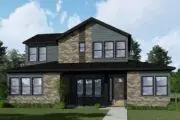
As Ontario grapples with rising real estate prices and chronically-low housing inventory, local government leaders convened to discuss potential solutions.
Today, Ontario Premier Doug Ford and Minister of Municipal Affairs and Housing, Steve Clark, hosted a virtual provincial-municipal Housing Affordability Summit for Ontario’s Big City Mayors (OBCM) and regional chairs to discuss solutions to the housing crisis.
The summit allowed provincial and municipal governments to identify opportunities of collaboration when it comes to improving housing affordability and increasing the amount of new housing supply in Ontario.
“Our goal for the summit was to provide an opportunity to come together and to share best practices and innovations between municipalities,” said Ford in his closing remarks. “And on that, we can judge today to have been a success, but there will be many more steps on the way as we work together to solve our housing crisis and that’s because there’s no one-size-fits-all solution.”
The premier announced that over $45 million will be provided in a new Streamline Development Approval Fund that will help Ontario’s 39 largest municipalities to “unlock housing supply” by cutting red tape and improving processes for industrial and residential developments. New data standards will also be created for planning and development applications to speed up approval timelines.
Over $8 million will be given through a new intake under the Audit and Accountability Fund to help large, urban communities identify potential savings and efficiencies “with the goal of further accelerating the creation of new housing,” according to Clark.
When opening the summit this morning, Ford stated that it’s no secret that Ontario has a housing crisis, a problem that resulted from “decades of inaction by previous governments.” According to the latest data from the Toronto Regional Real Estate Board (TRREB), high demand against comparatively low supply pushed the price of the average Greater Toronto Area home to an all-time record of $1,095,475 in 2021. Nationwide, Canada is also experiencing the lowest quantity of available homes in history as per the most recent reporting from the Canadian Real Estate Association (CREA).

Clark referenced a recent report by Scotiabank, which states that Ontario’s per capita housing stock is well below the national average and requires over 650,000 homes to match the other provinces. Demand for housing will continue to grow, but new housing supply is choked by red tape, he said.
“Our government will continue so that you, our municipal partners, have the resources and the tools you need to enable more homes to be built faster so that all hard-working Ontarians can find the home that’s right for them,” said Clark during the summit’s opening remarks.
When asked by reporters if the summit discussed changes to as-of-right, inclusionary and detached zoning bylaws, Clark said that there were a lot of suggestions that were provided during the summit and to the province’s Housing Affordability Task Force, which are being discussed.
“With a population that is growing as fast as ours, we cannot afford any further delays. We must fully commit to meeting these needs head on,” said Ford. “The result of not acting, of allowing this crisis to go unanswered, would be to see Ontarians look elsewhere for opportunities they seek. We can’t allow this to happen.”
In 2020, the year after the government’s More Homes, More Choice: Ontario’s Housing Supply Action Plan was implemented, Ontario says that it had over 81,000 housing starts, the highest level in a decade and 11,000 rental starts, the highest count since 1992.
Last month, the provincial government appointed nine members to its new Housing Affordability Task Force, who will offer recommendations on additional measures to tackle market housing supply and affordability. The Task Force’s recommendations will be published in early 2022.
Prime Minister Justin Trudeau was invited by Ford to attend today’s summit, but was not expected to attend according to other news sources. The Housing Affordability Summit was originally scheduled in mid-December, but was postponed by a month so municipal leaders could focus on responding to the surging Omicron variant.
On Sunday, rural, remote and northern municipalities will gather for the Rural Housing Affordability Roundtable.






